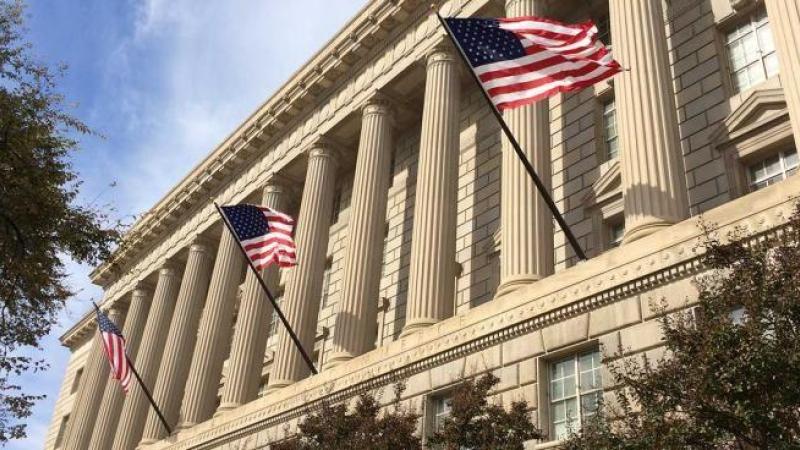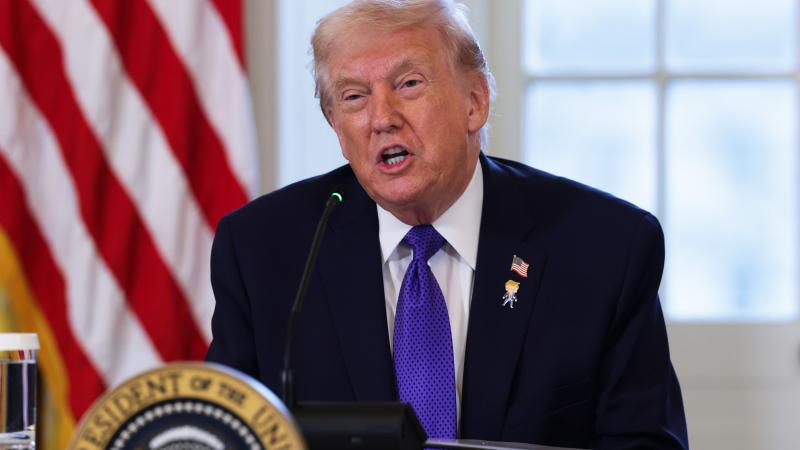'Ask the virus': Pelosi sets stage for more COVID relief spending beyond pending $1.9T bill
"We will have legislation to address it for as long as it's there," Pelosi said, referring to the coronavirus.
House Speaker Nancy Pelosi is setting the stage for more COVID-19 stimulus spending ahead of the final vote on President Joe Biden's $1.9 trillion American Rescue Plan.
Pelosi was asked if the $1.9 trillion stimulus bill, the second largest rescue bill in U.S. history, would be the last coronavirus rescue legislation that Congress passes.
"You're just going to have to ask the virus," Pelosi said on Tuesday ahead of the scheduled vote on Wednesday. "If it stops mutating, if it stops spreading and therefore mutating, then this will be and some of the provisions in here that have a fuse like the expanded, the enhanced unemployment insurance benefit that goes until the fall, we'll just see where we are then."
Pelosi was referring to the temporary weekly federal unemployment payments Congress has provided during the pandemic. A weekly federal benefit of $300 will be paid on top of state jobless benefits in the Biden bill through Sept. 6. Recipients will also be able to receive a tax waiver on $10,200 of unemployment payments.
The virus is "not anything that anybody can predict," said Pelosi. "It's just a question of the science, and we will have legislation to address it for as long as it's there. What's interesting about this virus is that it's resourceful, it mutates, it has variants, and so too must we be resourceful and resilient in how we deal with it, but we will be on top of it."
The Biden stimulus plan is poised to be the third major coronavirus economic rescue bill that Congress has passed at a combined cost of $5 trillion since the pandemic began. The previous bills passed under former President Donald Trump include the $2.2 trillion CARES Act in March of 2020 and a $900 billion stimulus bill in December of 2020. There were three other smaller-scale coronavirus stimulus bills that Congress passed during Trump's term as well.
In February, the Congressional Budget Office projected that the deficit for FY2021 would be $2.3 trillion, but that estimate did not include the fiscal impact of the Biden stimulus bill. In FY2020, the deficit reached a record $3.1 trillion, driven by coronavirus stimulus spending.
The national debt has topped $28 trillion for the first time, according to Treasury Department data. The Peter G. Peterson Foundation estimates that the current $28 trillion debt represents $84,681 per person in the U.S.
The Committee for a Responsible Federal Budget, a bipartisan fiscal policy think tank, released an analysis for the Biden stimulus plan projecting that it could add as much as $4 trillion to the national debt by 2031.
The stimulus bill expands the social safety net in a wide array of areas. The bill contains billions of taxpayer dollars for the expansion of government programs related to rent, utilities, food, and taxes.
Republicans have argued that some of the spending in the massive bill is not directly related to COVID-19, such as the $86 billion bailout for union-backed pensions and the $5 billion in taxpayer-funded assistance for farmers of color that includes direct payments.















